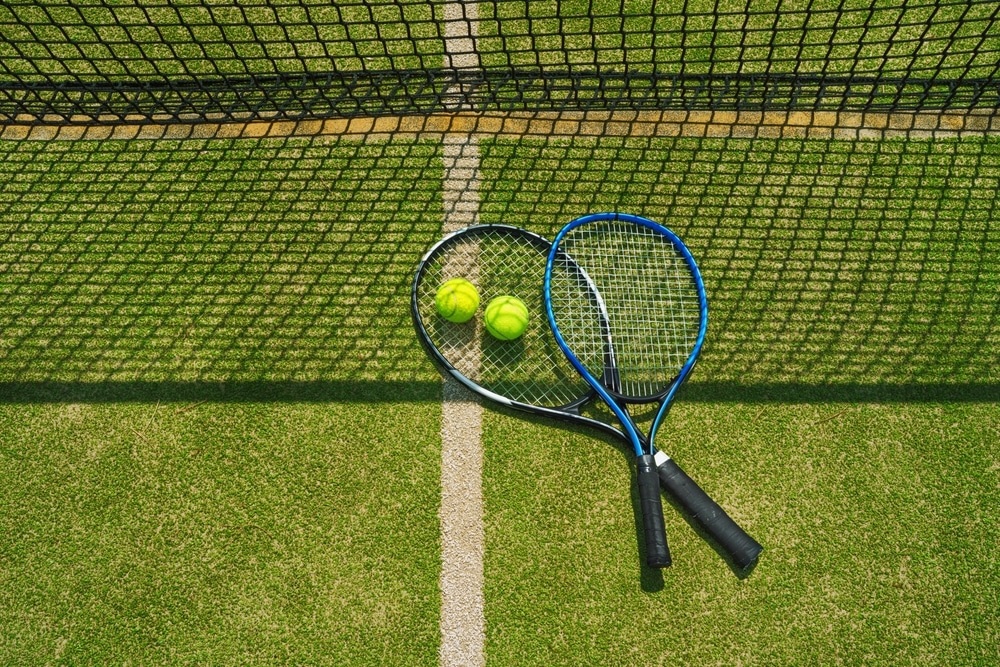Top 7 Advantages Of Playing Tennis
I’ve always been one to dive wholeheartedly into physical activities. From my days darting across country terrains and asphalt paths, to the point of authoring a book on marathon running. I’ve danced to the rhythms of cardio workouts, plunged into swimming, braved high-intensity interval training, and even weathered a year of CrossFit.
Imagine my surprise when tennis, which I reacquainted myself with after a five-year hiatus, didn’t just become another phase. It turned out to be a mainstay in my life. Conversations with fellow tennis enthusiasts reveal a shared sentiment: Tennis transcends the typical sporting experience. It’s a holistic pastime, blending physical rigor, mental acuity, tactical thinking, and pure grit. But above all, it’s immensely enjoyable.
If you’ve even remotely considered trying tennis, I assure you it’s worth taking up the racket. And no, it’s not just to expand my circle of sparring partners. Tennis offers a wealth of social, mental, and physiological benefits.
So, let’s dive into the seven advantages of tennis that will have you eager to play.
1. A Comprehensive Physical Challenge
In my younger years, I stumbled upon an article in a glossy magazine that hailed tennis as the best sport for leg definition. Now, cosmetic appeal aside, I can vouch for the intense workout your entire body endures just minutes after stepping onto the court. The truth is, tennis is exceptional for building strength in your glutes, quads, hamstrings, and calves.
“The sport demands running and explosive leg movements. It hones your balance with constant directional changes,” highlights Graeme Cox, a certified tennis coach with USPTA and an assistant coach for the University of Utah men’s tennis team.
But it doesn’t stop with the legs. When I delved back into tennis, aiming to compose a robust fitness routine, I consulted a book titled Tennis Anatomy. The illustrations revealed nearly every muscle group participates in the game.
“It’s a thorough workout,” Cox asserts. “Your core gets a fantastic workout as it generates most of the power during strokes, even though people might not realize it. Plus, your arms are actively engaged when swinging the racket.”
A 2019 study in Sports Health: A Multidisciplinary Approach showed that regular tennis players, compared to non-players, boasted stronger musculoskeletal functions in both upper and lower body areas.
Tennis also serves as an incredible cardiovascular workout.
“Regular play significantly enhances sprinting and recovery stamina,” states Connor Frazier, a seasoned player and tennis instructor at Liberty Park Tennis Center in Salt Lake City, Utah. “The essence of tennis lies in the capacity to recuperate swiftly for the next exchange, not just in running endurance.”
These intense bursts of activity with minimal rest intervals are key to improving anaerobic fitness and your maximum oxygen uptake. And what’s exhilarating is the constant challenge; as you elevate your game, so does the pace of play and the skill of your competitors.
2. Enjoyment from the Get-Go
Though demanding, tennis is a sport that delivers enjoyment from your very first foray onto the court. Frazier points out that you don’t need to be exceptionally fit, contrary to what professional games might suggest.
“The sport is more accessible than many realize, and it doesn’t take advanced skills to enjoy it,” he remarks. “Even participants who aren’t as agile or strong find immense pleasure in the game, simply exchanging gentle volleys with one another.”
On your first day, you could find yourself engaging in a thrilling exchange with a playing partner or a practice wall, a small victory that becomes swiftly addictive and a source of unending entertainment.
Frazier notes the joy in witnessing your own progress, explaining that tennis is a sport where initial awkwardness gives way to growing coordination, which is a skill that can be honed with time—and it often takes less than you’d expect.
3. Nurture a Progressive Perspective
A treasured aspect of tennis for me lies in the endless learning curve. Devoted players invest time in strategizing, exploring new techniques, and achieving personal milestones.
The cerebral aspect of refining your game and setting evolving goals keeps you engaged and averts complacency. Cox, who coaches clients across a broad age range, observes a universal commitment among them to enhancing their prowess.
Even as your skills develop, the complexity of tennis ensures there are always new facets to explore, which Cox regards as beneficial for mental agility.
“Tennis is nuanced; success is subjective. You’re continually adjusting your approach and coping with the variable outcomes of your performance,” he elaborates.
Frazier concurs, pointing out that there’s always a fresh aspect of play to master, whether technique or tactics, making tennis an ideal lifelong project.
4. Cultivates Resilience
Tennis can be an emotionally charged pursuit. As competition mounts, each match is a see-saw of triumphs and disappointments. You’ll revel in days when every serve is ace-worthy and contend with times when missteps abound.
“You’re really contending with yourself,” Frazier observes. “Despite the adversary across the net, the real goal is to perform your personal best. It’s about realizing that losses can still reflect strong play, just as victories can result from less than stellar performance.”
The game teaches you to navigate your failures, providing coping strategies that are valuable well past the sidelines of the court.
“We notice a major boost in confidence among young players when they learn to push through challenges,” Frazier adds.
5. Encourages Mindfulness
The buzz around mindfulness – the practice of remaining focused and present – is well deserved. For individuals searching for ways to engage in the moment, tennis can serve as an ideal platform. During the game, players must remain acutely aware of their movements, strategies, and immediate objectives, fostering a state of attentiveness that can have profound benefits in daily life.
Tennis serves as an exceptional mental diversion, allowing us to juggle countless tasks with ease.
While playing tennis, your focus is solely on the vibrant yellow ball, regardless of your skill level. Achieving such intense focus demands effort but can act as an effective form of active meditation when mastered.
Seasoned players are well aware of the difficulties in maintaining concentration during matches. It’s easy to become preoccupied with the score, potential game outcomes, or feelings about your performance.
“Every player I work with, from top-tier athletes to beginners, finds it challenging to stay present. The challenge is to focus intensely—how can you zero in on the moment and stay composed?” according to Cox. “It’s about what you can concentrate on and how to break it down into manageable parts.”
Trying to train your brain to concentrate on the current play is a mindfulness practice in itself, and with repeated effort, it becomes more natural. Personally, I’ve noticed an improvement in my focus in other areas of life as well, beyond the infrequent instances when tennis isn’t on my mind.
6. The Quintessential Social Sport
Reflecting on my social life, I realize most of my friends, including my closest ones, were met through tennis.
“Making friends outside of work is tough as an adult,” suggests Frazier. “Tennis, however, provides a gateway to more social encounters. Since it requires at least two people, it naturally fosters these social settings. You find individuals from all professions and walks of life gathering over tennis.”
Tennis is unique in its inherent camaraderie. During warmups and side switches, there’s an opportunity for conversation and life updates, leading to invitations to join classes, teams, and leagues.
Nearly every city offers clinics for players of all abilities and ages. These group sessions offer a welcoming route into the tennis community. It’s worth mentioning that tennis has shed its exclusive country club image, making local YMCA or community center programs more affordable. Typical sessions start at $20 for an hour and a half.
“Meeting new people, exchanging rallies and playing generally equals a fantastic experience,” says Frazier.
7. A Sport for a Lifetime
It’s commonly said that tennis is a lifelong sport, and this holds true. Whether picking up a racket as a youngster or continuing to play into your senior years, tennis is adaptable to be gentler on the body as we age.
“You’ll encounter former competitive players now in their 70s or 80s, who, while not at their past performance level, still relish the game and have found compatible playing partners,” Cox remarks.
As an age-friendly sport, tennis offers a mixture of physical activity, mental sharpness, and social interaction. Research has suggested that it can even extend your lifespan by a decade. Further studies indicate that senior tennis players have a lower incidence of cardiovascular diseases, obesity, and depression.
Cox also notes the role of tennis in keeping older players mentally engaged.
“I teach several individuals in their 70s. For them, concerns like dementia and Alzheimer’s are real possibilities. We discuss how they continue playing tennis to keep their minds sharp and constantly learn new things,” he shares. “Even my own father played until he was 87, always striving to improve, which is a testament to the enduring mental and physical appeal of the game,” adds Cox.














